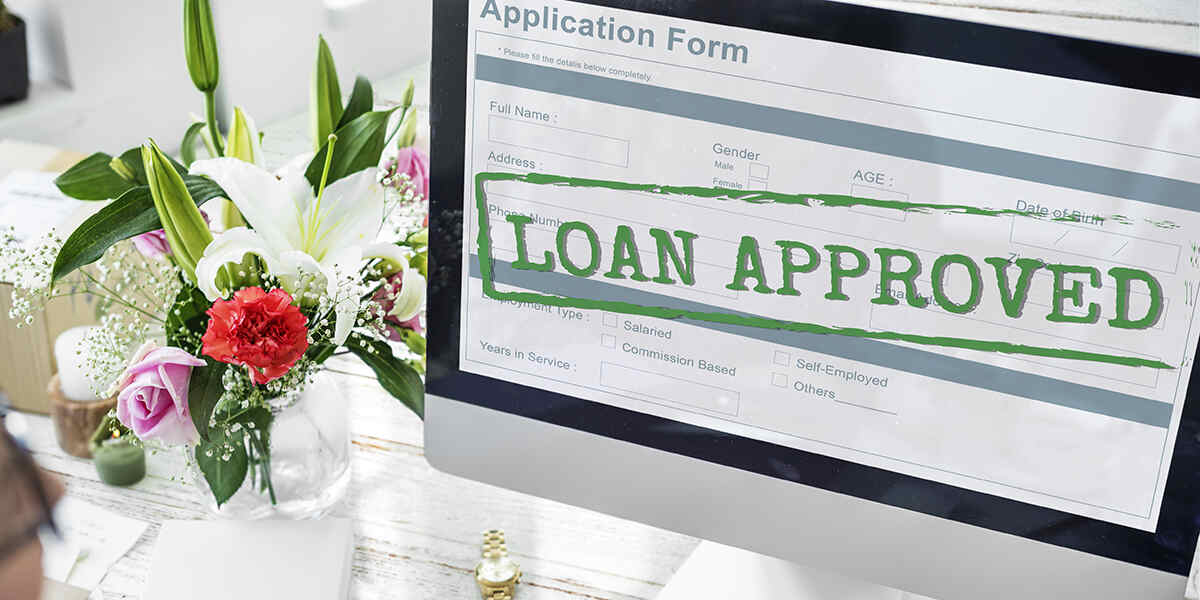Purchasing a home can bring a sense of excitement, but it also involves a considerable amount of paperwork. Prior to securing your mortgage, you will need to assemble various documents. These documents help lenders assess your financial background and confirm your ability to repay the loan.
In this article, we will outline the important mortgage loan documents you should collect to streamline the process. Let’s get started!
Understanding Mortgage Loan Documents
When reviewing mortgage loan documents, a homeowner should focus on important components such as the closing disclosure, which outlines the final amounts for closing costs, and the promissory note detailing the loan terms. They should check their credit score and credit history, as these affect the terms of the mortgage. Understanding tax returns, pay stubs, and bank statements helps clarify one’s financial situation.
Individuals can identify potential discrepancies by comparing their financial history with the documents provided, ensuring all assets and liabilities are accurately represented. Resources like the Truth-in-Lending statement and the FHFA limits offer insights into mortgage costs and compliance, especially when dealing with jumbo loans. For those who are self-employed, verifying income through supporting documents is important. If confusion arises, homeowners can reach out to their lenders for explanations regarding complex terms.
Additionally, housing counseling services often help clarify any uncertainties, ensuring buyers are well-prepared for their home-buying journey. A gift letter can also explain additional funds received for the down payment, reinforcing clarity in the mortgage application process.
Why Preparation of Documents is Essential
Preparing mortgage documents is necessary for a smooth mortgage application process. Well-organized documents, such as tax returns, pay stubs, and bank statements, assist lenders in evaluating a homeowner’s financial situation. This includes examining credit history, credit score, assets and liabilities, and debt-to-income ratio. For instance, self-employed individuals require specific documents to demonstrate their income over the past two years, which can influence mortgage approval.
Incomplete paperwork may lead to delays in purchasing a home, affecting the ability to cover closing costs and potentially losing out on a property. Clear documentation, including a gift letter for down payment assistance, is significant when lenders assess loan programs like jumbo loans. Understanding what a closing disclosure involves and ensuring compliance with truth-in-lending regulations provides assurance to a borrower.
Thus, thorough document preparation directly impacts a homeowner’s success in obtaining a mortgage loan, while inadequate documentation can cause issues that slow down financing.
Personal Identification Documents
Government-Issued ID
A government-issued ID, such as a driver’s license or passport, is an important part of a mortgage application. Lenders require this to confirm the identity of the borrower and ensure their financial history is accurate. When buying a home, it’s important for the homeowner to check that their ID is valid and not expired, as lenders may have specific guidelines regarding accepted forms of identification.
If the ID is nearing expiration, it’s wise to renew it before submitting the mortgage documents. This prevents delays in the homebuying journey, where documents like tax returns, pay stubs, and bank statements are needed. A good credit history boosts credit scores, which can influence the type of loan program offered. An individual earning a living as self-employed should ensure all financial documents match their ID.
For individuals taking on jumbo loans or navigating truth-in-lending requirements, staying on top of personal assets and liabilities is important, as debt-to-income ratios are scrutinized to evaluate financial situations. Offering a gift letter for a down payment can also simplify the process, especially when preparing for closing costs.
Social Security Number
A Social Security Number (SSN) helps establish a homeowner’s identity and credit history when applying for a mortgage. This number allows lenders to check credit scores and assess financial situations, which includes reviewing tax returns, bank statements, pay stubs, and recent financial history. It supports the evaluation of a borrower’s debt-to-income ratio, which is significant when determining eligibility for different loan programs, including jumbo loans.
To protect their SSN, individuals should ensure that all mortgage documents are handled securely and only shared with trusted lenders. Providing an incorrect SSN could lead to serious problems, such as delays in processing the mortgage application and potential denial of the home loan. It may also result in complications during the homebuying journey, impacting the closing disclosure and increasing closing costs.
Therefore, it is important that all provided information, including gift letters for down payments, is accurate and complete to avoid issues in the future.
Income Verification Documents
Pay Stubs
Pay stubs include important information, such as the homeowner’s gross and net income, which are necessary for verifying their current earnings. The frequency of pay periods shown on pay stubs, whether weekly or biweekly, can impact income verification as lenders assess how stable the borrower’s financial situation is over two years. For someone self-employed, gaps or inconsistencies in pay stubs may raise questions about their credit history and overall financial health.
Discrepancies can lead to a higher debt-to-income ratio, causing lenders to reevaluate the mortgage application, possibly resulting in higher closing costs or denial. A closing disclosure will detail all financial obligations tied to the mortgage loan, including homeowners insurance and loan program terms. If issues arise, additional documents like tax returns, bank statements, and a gift letter for down payment assistance may be required to clarify the borrower’s financial history and assets and liabilities.
Moreover, understanding the truth-in-lending requirements can help ensure compliance with FHA limits, especially when considering jumbo loans.
Tax Returns
When applying for a mortgage loan, homeowners must provide their tax returns to assess their financial situation. Lenders typically require tax returns for the past two years, which allow them to verify the applicant’s income stability and financial history. Along with the tax returns, pay stubs and bank statements are important documents that should accompany them. These documents provide a clearer picture of the homeowner’s current earnings and help lenders evaluate assets and liabilities.
Additionally, if the homeowner is self-employed, they may need to include profit and loss statements to show consistent income. Understanding credit scores is important, as they influence the mortgage application process and the approval of loan programs. Other relevant paperwork, such as a gift letter if funds for the down payment are coming from family, may also be needed.
This combination of documents is significant in determining the homeowner’s eligibility for a mortgage, including considerations for closing costs and the debt-to-income ratio.
Asset Verification Documents
Bank Statements
Bank statements for mortgage loan applications should include regular deposits, withdrawals, and balances that showcase a homeowner’s financial situation. Lenders typically require bank statements covering at least two years to assess the applicant’s assets and liabilities. This timeframe helps verify consistency in income and expenses, which is important for determining the debt-to-income ratio.
When reviewing bank statements, individuals should be cautious of discrepancies, such as sudden large deposits that may raise questions or irregular transaction patterns that could affect their loan approval.
Additionally, if the homeowner is self-employed, statements must reflect income that aligns with their credit history and tax returns. The closing disclosure, which includes estimated closing costs, along with evidence of homeowners insurance, adds further assurance of financial reliability. For those considering jumbo loans or specific loan programs, a gift letter may also be required if family or friends contribute towards the down payment. Maintaining clarity in these documents is necessary for a smooth homebuying journey.
Investment Account Statements
When a homeowner reviews their mortgage documents, they need to understand various components. This includes the details on their closing disclosure, which outlines final terms, costs, and who pays at closing. They should also check the loan program, like jumbo loans, to ensure they meet FHFA limits. Monitoring their credit score is important since it reflects their credit history and affects their mortgage application.
Homebuyers often provide tax returns, pay stubs, and bank statements to show their financial situation. This is important for confirming assets and liabilities, ensuring a reasonable debt-to-income ratio, and proving they can make their mortgage payments. For those who are self-employed, additional scrutiny of financial history is needed for accurate documentation. A gift letter might be required if someone is aiding with the down payment. Understanding closing costs is also vital for budgeting.
Debt Information Documents
During the home-buying process, homeowners typically need to gather various mortgage documents to support their application. This often includes tax returns and bank statements from the last two years, pay stubs that verify current income, and a gift letter if funds are provided for a down payment. Self-employed individuals should also include profit and loss statements to showcase their financial status. Keeping these documents orderly helps prevent problems.
Homeowners should review their credit score and credit history to meet specific lender requirements and ensure an acceptable debt-to-income ratio. They must also submit truth-in-lending disclosures and closing disclosures, which outline the terms and costs of the mortgage. To avoid delays, submitting accurate documents and ensuring correct signatures and figures is important. Homeowners should be mindful of closing costs associated with the mortgage and any FHFA limits that apply to jumbo loans.
Proper organization and careful attention can speed up the approval process for a home loan.
Property-Related Documents
When applying for a mortgage loan, various documents are required, such as tax returns and bank statements, to demonstrate a homeowner’s financial situation. Pay stubs help confirm income, while credit scores are important for assessing the borrower’s credit history. Documents detailing assets and liabilities illustrate the applicant’s financial health, which affects their debt-to-income ratio. For instance, a gift letter is needed if family members assist with a down payment.
During the homebuying process, a closing disclosure outlines all closing costs, ensuring buyers understand their obligations. Accurate mortgage documents can speed up approval, as lenders depend on them to evaluate the home’s worth and decide on loan programs. Jumbo loans, which exceed FHFA limits, often come with stricter requirements, highlighting the need for precise financial history documentation.
Lastly, the deed is necessary for establishing ownership once the mortgage payment commitments are fulfilled, ensuring that homeowners are protected under truth-in-lending laws.
Tips for Organizing Mortgage Loan Documents
To effectively organize mortgage loan documents, homeowners can create a dedicated folder, both physical and digital, to store all important files. This folder should include important paperwork like tax returns, pay stubs, bank statements, and details about any assets and liabilities. Keeping these documents sorted by categories, such as income verification, financial history, and closing costs, allows for quick access during the home-buying process.
Tools like cloud storage and document management apps can improve organization, enabling easy retrieval anytime. Alongside income verification, individuals should keep track of their credit scores and credit history, as lenders often review these when assessing a mortgage application.
Additionally, it’s important to gather documents related to homeowners insurance, the deed for the property, and gift letters, if applicable. Homeowners should also be aware of their debt-to-income ratio and know the FHFA limits for loan programs. Having well-organized documents ready can make a significant difference in managing closing disclosure details and preparing for mortgage payments, especially for those considering jumbo loans.
Common Mistakes When Preparing Documents
When preparing for a mortgage application, many individuals overlook the need for complete personal identification documents, such as a photo ID or Social Security number. Not having these can delay the approval process.
Additionally, incomplete income verification, like missing tax returns or recent pay stubs, may negatively affect the assessment of credit history. Lenders require thorough proof of income to ensure that the homeowner meets the requirements for the mortgage loan. Common mistakes in compiling asset verification documents include not providing full bank statements or failing to show a consistent down payment history. To avoid issues, borrowers should gather all financial records, including assets and liabilities, for at least two years. If someone is using a gift for the down payment, including a gift letter to confirm it is not a loan is important. These oversights can complicate the homebuying journey and even lead to rejection.
Understanding the need for accurate documentation, including the closing disclosure and homeowners insurance, can help streamline the process and meet debt-to-income ratio requirements.
Final Steps Before Submission
Before submitting mortgage loan documents, homeowners should thoroughly check all paperwork for accuracy and completeness. This involves confirming that financial documents, including tax returns, pay stubs, and bank statements, accurately reflect their financial situation and align with their credit history. The applicant must ensure that all required signatures are included on each document, making certain that items such as the closing disclosure and gift letter are properly signed.
It’s advisable to keep copies of all submitted documents for future reference. A careful review is particularly important when examining details like the debt-to-income ratio and total assets and liabilities, which influence the overall credit score. A solid understanding of the closing costs involved in purchasing a home is necessary, along with knowledge of current FHA limits for loans.
Additionally, if the homeowner qualifies for jumbo loans, paying attention to these details can lead to a smoother home-buying experience.
Importance of Accurate Documentation in Financing a Home
Accurate mortgage documents are critical for prospective homeowners as they significantly influence the approval process. Lenders assess an applicant’s financial situation by reviewing documents such as tax returns, bank statements, pay stubs, and credit history. A complete package helps lenders understand the borrower’s assets and liabilities, potentially leading to better loan programs and favorable terms.
For example, a solid credit score and a strong two-year financial history can enhance potential homeowners’ debt-to-income ratio, allowing them to secure loans with lower interest rates. On the other hand, inaccuracies can delay approvals and complicate the homebuying journey. Missing or incorrect information in the closing disclosure may result in unexpected closing costs, affecting the down payment amount. In jumbo loan scenarios, the requirements become more stringent, making accurate documentation even more important.
Self-employed applicants must ensure their financial paperwork is organized and precise to avoid lengthy processing times. Providing a gift letter, if applicable, can help confirm the source of the down payment, further streamlining the transaction.
FAQ
What are the essential documents required for a mortgage loan application?
Essential documents for a mortgage loan application include: W-2 forms (last 2 years), pay stubs (last 30 days), bank statements (last 2 months), tax returns (last 2 years), and proof of assets (e.g., investment statements). Provide a valid ID and any details of additional income.
How can I gather my financial documents for the mortgage process?
Gather your financial documents by collecting your recent pay stubs, W-2s, bank statements, tax returns from the last two years, and employment verification letters. Use a checklist to ensure you have everything, and consider using a secure online folder for easy access.
Do I need to provide tax returns when applying for a mortgage?
Yes, you typically need to provide tax returns when applying for a mortgage. Lenders usually ask for the last two years of returns to verify income. For example, if you’re self-employed or have multiple income sources, include all relevant returns for accurate assessment.
What identification documents do I need to prepare for a mortgage loan?
Prepare a government-issued ID (e.g., driver’s license, passport), Social Security card, recent pay stubs, W-2 forms or tax returns, bank statements, and any other proof of income or assets. These documents help lenders verify your identity and financial stability.
Are there any additional documents I should be aware of when closing on a mortgage?
Yes, be prepared for additional documents like the Closing Disclosure, title insurance policy, and proof of homeowners insurance. You may also need to provide personal identification, income verification documents, and bank statements. Review these carefully before closing to ensure all information is accurate.
Get a head start on your mortgage application with Champions Mortgage. Contact us today to learn about the essential documents you need to prepare. Our experts are here to guide you through every step, ensuring a smooth and successful loan process. Let’s get you ready for your dream home!







